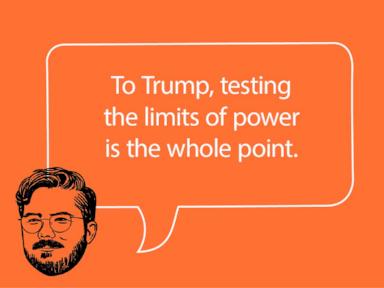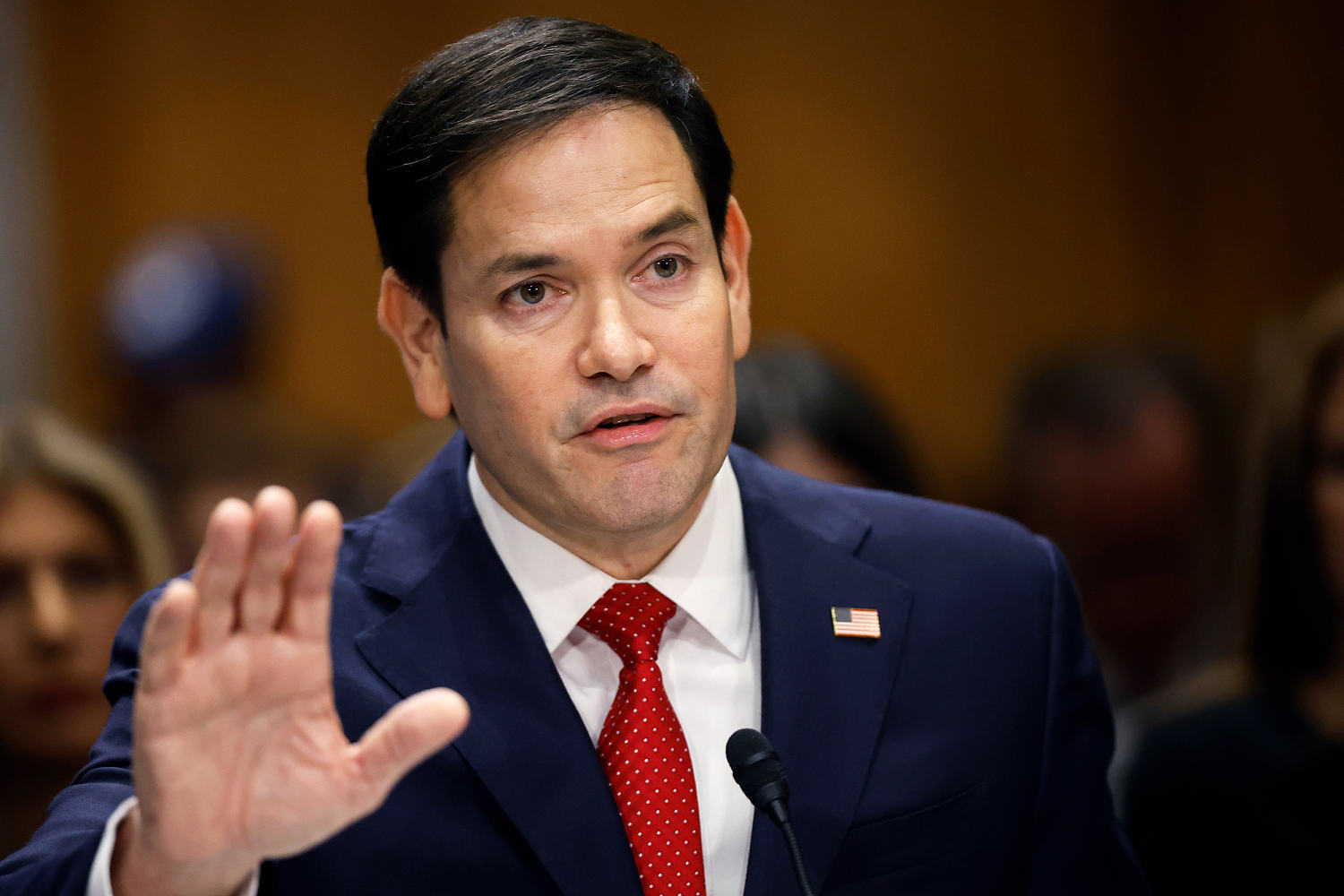What Trump and DOGE can learn from Reagan’s successes and failures

When President Trump proposed the Department of Government Efficiency, those of us concerned about the federal government’s enormous debt had reason to be encouraged. Although neither he nor his opponent expressed much concern about fiscal responsibility during the campaign, the creation of this influential non-governmental commission suggests that Trump intends to make it a priority.
Among DOGE’s goals — streamlining government operations, eliminating unnecessary regulation and reducing excessive spending — the last is the most difficult. To be successful, the Trump administration can learn from the Reagan administration’s wins and losses.
Although Reagan won the 1980 election with 489 electoral votes and Trump only won 312 in 2024, Trump has an enormous advantage Reagan never did: Republicans will control both houses of Congress when he takes office. In 1981, they controlled only the Senate.
During his campaign, Reagan promised a large tax cut, a substantial increase in defense expenditures and a large reduction in non defense expenditures. He also promised to bring the budget into balance within a few years. He did not delay in acting on the first three promises, but the reduction in nondefense spending was not large enough to keep budget deficits from growing.
Only two weeks after his inauguration, Reagan addressed the public about his plans to reduce both taxes and government spending on domestic programs. Gaining their support for his budget plan increased the pressure on Congress to vote for legislation to implement it.
Following each television appearance to promote his policies, Reagan orchestrated what one researcher calls “a sophisticated and hard-nosed grassroots campaign in the districts of wavering congressmen.”
It's hard to reduce spending because each program benefits one interest group or another — groups which are willing and able to lobby Congress to preserve that spending. Members of Congress have powerful incentives to serve interest groups, for example farmers, which may be small minorities of the population but wield considerable political influence and receive large per capita benefits.
These interest groups get their way because Congress excels at fragmenting issues and avoiding decisions about overarching objectives — such as the national spending problem — by voting on multiple, separate appropriations bills. The president, because he is elected at the national level, has an incentive to limit spending on programs that benefit special interest groups at the expense of present and future taxpayers. But reducing such spending requires a congressional vote.
Reagan addressed this challenge with budget reconciliation, packaging more than 200 program changes into one bill. Congress had to consider the entire budget on his terms and voted in favor. It was in the interest of a majority of senators and representatives to support Reagan’s broader goals. Thus, something that seems almost impossible today — reducing domestic spending — was achieved.
To their credit, members of Congress care about the details of individual spending programs. By delegating these details to others in his administration, Reagan was in a position to persuade legislators to support his overarching goals without getting into arguments about specifics.
However, the ultimate outcomes were a mix of positive and negative examples to learn from.
Reagan’s administration accomplished substantial domestic spending reductions during its first year in office. But the budget reduced programs that benefitted largely Democratic constituencies — such as employment and training programs, food stamps and education assistance — while sparing more middle-class entitlements such as veterans benefits and Social Security. The latter remains a major driver of our spending imbalance today.
The Trump administration has also stated that reducing Social Security is off-limits. The program’s funds are set to run out in about a decade, triggering painful, automatic benefit cuts. The Reagan administration eventually took steps to reform it through a bipartisan commission — an example Trump should follow.
Hindering spending cuts during the Reagan years was that it was not his ultimate priority. He cared more about tax cuts and increasing defense spending. Thus, reductions in nondefense spending were more than offset and deficits increased during the 1980s.
Reagan presided over the largest peacetime increase in defense spending in history, which reduced his credibility on spending matters with Congress. Once the honeymoon period was over after his first year in office, Congress was unwilling to continue to reduce spending on domestic programs that benefited their constituents.
Those involved in DOGE can learn much from the Reagan administration’s successes and failures. A newly elected president can accomplish a lot during the honeymoon period. But to have a larger and more lasting impact, Trump must be persistent and consistent in subsequent years. He must pursue a variety of spending cuts that will clearly serve the interests of the American public as a whole, and not just his supporters.
Tracy C. Miller is a senior research editor with the Mercatus Center at George Mason University.
-

What did we learn from Trump's first week?
President Donald Trump's first week in office focused on immigration over the economy and continued to play to his base.ABC News - 2h -
Wealthy leaders share financial advice they gave their kids: Invest early, learn from failure — and think carefully about inheritance
Wealthy leaders share the financial advice they gave their kids, including invest early, budget —and think carefully about inheritance.CNBC - 1d -

Axelrod: Trump learned from last four years ‘he can get away with anything’
Democratic strategist David Axelrod said he thinks the biggest lesson President Trump has learned over the last four years is that he can “get away with anything.” “I think the lesson he’s drawn ...The Hill - 2d -

What we learned from 2025 NFL divisional round: Saquon Barkley owns Rams, Travis Kelce can still flip switch
Here's a look at some of the things we learned from the divisional roundCBS Sports - 4d -

3 Things You Can Learn from Dolly Parton’s Business Legacy
Lessons from the queen of country on her birthday.Inc. - 5d -
What's a passive home and what can L.A. learn from Colorado's worst fire?
In L.A., where the historic Palisades and Eaton Fires continue to burn, a Passive House was the only house still standing in its neighborhood.CBS News - Jan. 16 -
What US workers can expect from Trump’s second term
New administration expected to largely favour employers over the rank and file on issues such as remote workFinancial Times - Jan. 12 -

What Communicators Can Learn From Demi Moore’s Golden Globes Speech
Moore’s speech was authentic and powerful. Your next presentation can also be memorable if you examine and apply why the moment was magnetic.Inc. - Jan. 6 -

Canceling the apocalypse? What can we learn from films set in 2025
From monsters fighting robots to a grim look at a decaying healthcare system, past movies set in this new year offer a mixed outlook on what’s to come. The year 2025: It certainly has that ...The Guardian - Jan. 2
More from The Hill
-

Another Jan. 6 rioter rejects Trump's pardon: 'I did those things'
Another Jan. 6 rioter has rejected President Trump’s pardon, saying that he “did those things” and his actions do not merit forgiveness. “It's almost like he was trying to say it didn't happen. ...The Hill - 44m -

Anti-RFK Jr. ads target GOP senators
Click in for more news from The Hill {beacon} Health Care Health Care The Big Story Anti-RFK Jr. ads target GOP senators A progressive nonprofit is ramping up its campaign to convince senators ...The Hill - 1h -

Trump, Newsom enjoy friendly greeting, suggest they can work together
President Trump greeted California Gov. Gavin Newsom (D) with a very friendly exchange when he landed in the Los Angeles area to survey wildfire damage, after the two have sparred over relief ...The Hill - 1h -

Live updates: Trump, Newsom enjoy friendly greeting as president lands in California
President Trump enjoyed a friendly greeting with California Gov. Gavin Newsom as he landed Friday evening in California to view the devastation from the greater Los Angeles wildfires. The two ...The Hill - 1h -

Trump halts new renewables on public lands
{beacon} Energy & Environment Energy & Environment The Big Story Trump pauses renewables approvals on public land, water The Trump administration is pausing approvals for new renewable energy ...The Hill - 1h
More in Politics
-

Secretary of State Marco Rubio orders halt to almost all U.S. foreign aid
The directive follows President Donald Trump’s executive order Monday pausing new obligations and disbursements of foreign aid pending review.NBC News - 9m -

In hurricane-ravaged North Carolina, Trump suggests that FEMA should be overhauled or shut down
On a visit to a North Carolina neighborhood destroyed by Hurricane Helene, President Trump was highly critical of FEMA, suggesting it should be shut down. Trump arrived late Friday in Los Angeles ...NBC News - 41m -

Another Jan. 6 rioter rejects Trump's pardon: 'I did those things'
Another Jan. 6 rioter has rejected President Trump’s pardon, saying that he “did those things” and his actions do not merit forgiveness. “It's almost like he was trying to say it didn't happen. ...The Hill - 44m -

Secretary of State Rubio orders U.S. to immediately stop almost all foreign aid
Secretary of State Marco Rubio ordered an immediate stop to the flow of almost all U.S. foreign assistance, pending a review, according to an internal State Department cable obtained by NBC News. A ...NBC News - 55m -

Anti-RFK Jr. ads target GOP senators
Click in for more news from The Hill {beacon} Health Care Health Care The Big Story Anti-RFK Jr. ads target GOP senators A progressive nonprofit is ramping up its campaign to convince senators ...The Hill - 1h